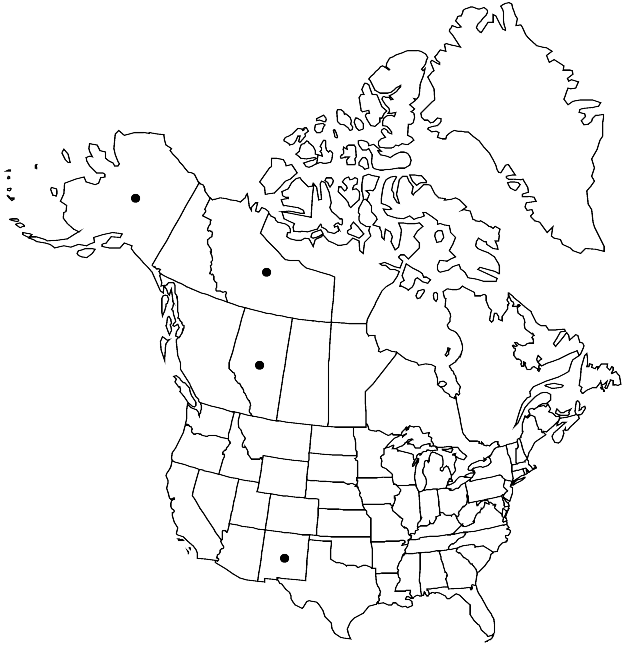Entodon schleicheri
Rev. Bryol. 12: 87. 1885.
Plants in thin mats, yellow-green. Stems to 8 cm, subpinnate, branches complanate-foliate. Leaves erect to erect-spreading, ovate-lanceolate, 2–2.5 mm (branch leaves 1.5–2.3 mm); margins plane, entire proximally, weakly serrulate distally; apex broadly, abruptly acuminate; costa double, short; alar region ± abruptly differentiated, 1-stratose, not reaching costa. Sexual condition autoicous. Seta reddish, 0.7–1.4 cm. Capsule cylindric, 2–3 mm; annulus not differentiated; operculum long-conic; exostome teeth reddish, external surface cross striolate proximally, obliquely striolate distally, papillose apically, rarely perforate; endostome segments smooth to slightly roughened. Spores 13–20 µm.
Habitat: Rock, bark at base of trees
Elevation: low to high elevations
Distribution

Alta., N.W.T., Alaska, N.Mex., Mexico (Nuevo León), Eurasia.
Discussion
Entodon schleicheri is an uncommon Western species often confused with E. cladorrhizans. However, E. schleicheri has leaves abruptly tapering with the apicalmost cell elongate, about 4:1, whereas E. cladorrhizans has gradually tapering leaves with a short (about 2:1) apical cell. In E. schleicheri the annulus is absent, the exostome teeth are striolate proximally, and the plants are usually saxicolous. In E. cladorrhizans the annulus is present, the exostome teeth are papillose proximally, and the plants are typically corticolous.
Selected References
None.